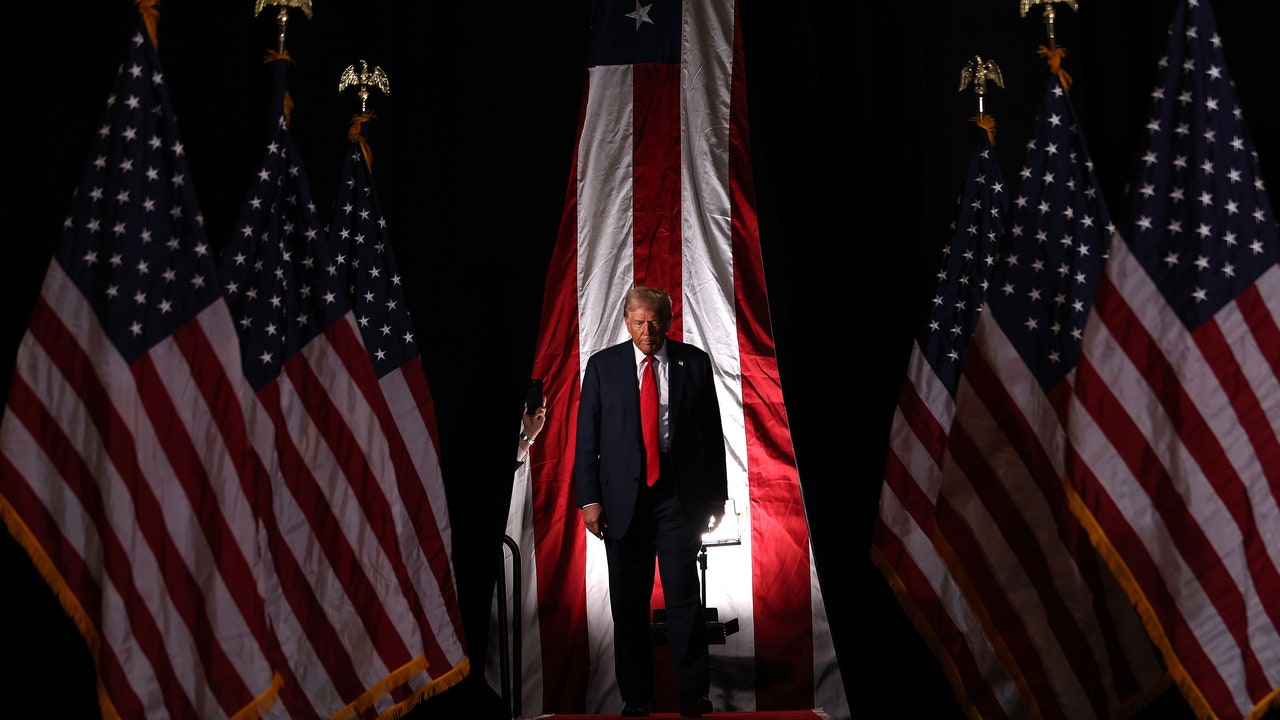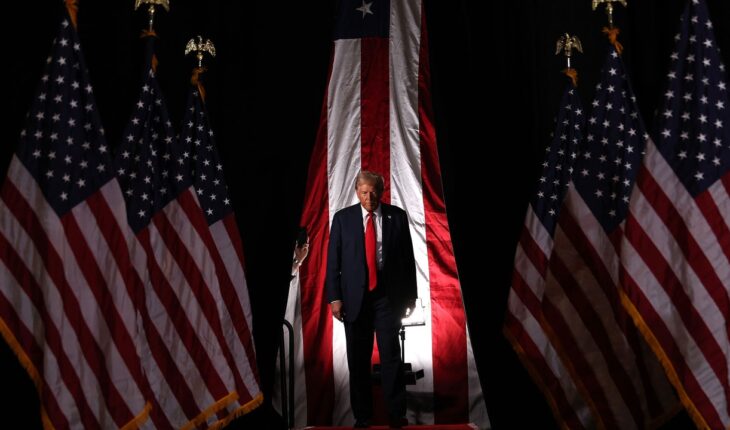
All of these legal entanglements portended poorly for Trump’s presidential bid. And many believed his White House hopes might be altogether dashed by convictions, particularly in the classified-documents and election-interference proceedings. However, the former president successfully managed to delay those cases, while his top primary challengers, including former South Carolina governor Nikki Haley and Florida governor Ron DeSantis, struggled to gain traction with a Republican base still in Trump’s thrall. With little to gain from participating in the primary debates in 2023, the former president strategically skipped them, and by the end of the year, it was all but clear that he’d secure the nomination once more.
By early 2024, 81-year-old Biden’s cognitive capacity was becoming more of a problem for his reelection bid; the president’s increasingly gaffe-prone rhetoric—and media-shyness—only punctuated his senescence. Then, in June, Biden delivered a notoriously abysmal debate performance against Trump, instilling widespread doubt among institutional Democrats about his ability to campaign and govern. The president’s prospects seemed to dim even further after Trump survived an assassination attempt at a mid-July rally in Butler, Pennsylvania, where he held up a fist in defiance as he bled from a bullet that grazed his ear.
At the same time, top Democrats were orchestrating a behind-the-scenes pressure campaign to get the president, whose popularity was actively in free fall, to drop out. And on July 21, Biden finally heeded those calls, clearing the way for Harris to replace him as the nominee. Immediately after Harris took the mantle, the electoral map shifted back in Democrats’ favor—an unwelcome development for Trump’s campaign, which was reportedly banking on an easy triumph over Biden.
In July, just ahead of his formal nomination at the GOP convention, Trump officially unveiled Vance as his running mate. While Vance initially had to answer for unsavory past remarks about women and children, the Ohio senator slowly gained his footing as Trump’s attack dog in interviews with mainstream media. Vance also displayed oratorical skill during his October debate with Walz, who at times faltered. As for Trump’s September debate against Harris, the former president was thought by many to have performed worse than the vice president, who simultaneously highlighted his past improprieties and parried his mistruths with ease.
In his attacks against Harris throughout the cycle, Trump leaned hard on Biden-era inflation and Harris’s past as a left-wing prosecutor, and sought to highlight the perceived failings of her vice presidency. Perhaps chief among them was her handling of immigration—an issue that Vance and Trump aggressively campaigned on in the final months of the election. Their anti-immigrant invective reached a moral low ground in mid-September, when they suddenly began to promote a racist, baseless lie that Haitian migrants in Springfield, Ohio, were eating residents’ pets. (Trump had previously claimed that immigrants were “poisoning the blood” of the country, while Vance had amplified the “great replacement” theory.) The Trump campaign, and the GOP, also put major resources behind anti-transgender ads.
On top of his demeaning remarks, the former president employed authoritarian rhetoric throughout his campaign, vowing “retribution” against his opponents, whom he intimated were “vermin” that should be rooted out of the country. The former president likewise promised to weaponize the federal government against his political enemies, including Biden, anti-Trump Republicans, congressional Democrats, and members of the press. His authoritarian tendencies came into stark relief just weeks ago, when his former chief of staff John Kelly recalled to The Atlantic that Trump, as president, expressed frustration about his generals failing to display the same fealty as Hitler’s. (Trump has denied that this occurred.) The report later prompted Harris to publicly call Trump, for the first time, a “fascist.”
During Trump’s first White House campaign in 2015, many Republicans expressed disapproval of his rhetoric, character, and conduct. And throughout his first presidential term, top officials in his own administration—as well as justices on the Supreme Court—blocked the former president from executing many items on his extreme political wish list.
However, Trump’s second term, which the party coalesced around in near-complete concert, is far less likely to be riven by internal dissent. The former president will assume powers that were dramatically expanded by the Supreme Court’s conservative majority just months before Election Day, granting presidents near-total immunity from criminal prosecution—a ruling that further delayed the DOJ’s election-subversion trial. (Meanwhile, Trump-appointed judge Aileen Cannon dismissed the classified-documents case; she’s reportedly on a list of potential attorney general candidates.)
Trump also plans to comprehensively reshuffle the federal bureaucracy with civil servants who will pose little to no resistance to his political plans—which, among other things, include the mass deportation of undocumented immigrants, the further erosion of reproductive rights, the imposition of massive tariffs on foreign goods, the persecution of political foes, and potentially a US withdrawal from NATO.





